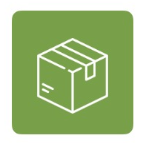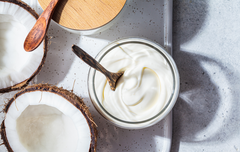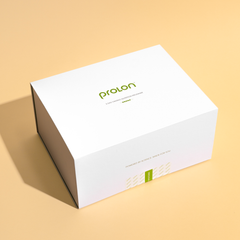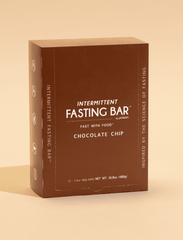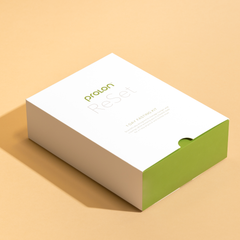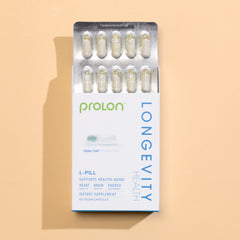
Fasting Headache: Why It Happens & How To Avoid It
Medically Reviewed by | Melinda Hany, Registered Nurse
You’ve read about the benefits of fasting and love the idea of your body entering a fasted state and (eventually) reaching cellular autophagy, which rejuvenates and recycles your cells. You want to love fasting… there’s just one problem — the fasting headache. Although fasting headaches can be normal, they may also make it nearly impossible to stay the course of a fast, especially if it’s for a long period of time (more than 72 hours). Let’s discuss what causes fasting headaches and how to avoid them.
Is It Normal To Get Headaches While Fasting?
Short answer: Yes. Most people experience some headache symptoms on fasting days, but they are usually mild, manageable, and go away on their own once the body has acclimated to the fasting period. For some, however, the combination of headache pain and lightheadedness seems to never let up, making any type of fasting even more of a challenge than it already is.
Generally, if you are a person who regularly gets migraine headaches, a fasting headache may also lead to a migraine attack.
Typically, most fasting headaches appear around the 16-hour mark of fasting. Those using an intermittent fasting plan, like 16:8, for instance, who sleep through half of the fasting period, may experience a fasting headache upon waking or shortly thereafter, before entering into the eating window, while those participating in longer periods of fasting, such as prolonged fasting (fasting for more than 48 hours), may experience a more acute headache.
What Does a Fasting Headache Feel Like?
Most people describe a fasting headache as a non-pulsating, continuous pain, more like a tension-type headache than a migraine. This type of headache usually presents in the frontal region of the head, the forehead, temples, and/or occasionally behind the eyes.
The headache itself can be distracting, making a person feel tired, nauseous, and even lightheaded. A fasting headache can last for as long as a person is fasting, but it usually goes away within 72 hours of eating.
What Are the Causes of Fasting Headaches?
If your fasts are routinely accompanied by these mild to severe headaches, understanding why they happen is the first step in getting relief.
Dehydration
It seems unlikely that you could become dehydrated on a water-only fast, but dehydration is one of the biggest side effects of it. Much of the water we consume comes from our food, so when we aren’t eating, we need to drink even more water to compensate.
Another component of a water fast that can cause dehydration is hyponatremia when the sodium in your blood is lower than it should be. This might result from drinking too much water, as excessive water intake can dilute the sodium in your body to unsafe levels. If you’re on a water-only fast, the chances of this happening are even greater because you’re not taking in enough electrolytes (like sodium) to keep up with your body’s needs.
Stress
Being on a fast not only places the body under stress but can also be stressful for the mind. Dealing with cravings can be mentally challenging, and anyone who has fasted for longer than 72 hours understands that half the battle is mindset. As such, stress, combined with less food in your body, can lead to headaches. “More likely than not, these are considered “tension” headaches,” notes Melinda Hany, Registered Nurse.
Caffeine Withdrawal
If you are used to several caffeinated beverages daily, then caffeine withdrawal can cause headaches during your fast. Caffeine headaches present similarly to tension headaches, with the expected onset around 18 hours after you last consumed caffeine.
It is important to note that caffeine headaches are entirely separate from fasting headaches and are even coded differently in the system that healthcare professionals use to classify headaches. This means that even if you are avoiding caffeine while fasting, your headache might not be from caffeine withdrawal and could be from your fasted state. “However, this does give you a good opportunity to kick your caffeine habit,” Hany notes.
Hypoglycemia
Another reason why someone might get a fasting headache is due to hypoglycemia or low blood sugar. On one hand, some people do have a genetic mechanism that predisposes them to headaches when there are drops in their blood sugar levels.
On the other hand, blood sugar levels naturally rise during certain periods of fasting. This is because after the body burns through available glucose in the blood, the pancreas gets a signal that blood sugar levels are falling. If no additional glucose enters the blood, the pancreas alerts the liver to convert stores of glycogen to glucagon and send it into the bloodstream to avoid blood sugar levels that are too low.
However, once you’ve reached the 72-hour mark for fasting, glycogen stores may be depleted, and your body will begin burning fat and ketones for fuel. This can result in lower blood sugar levels, which may trigger a headache.
Sugar Withdrawal
Sugar is very prevalent in the American diet and causes the brain to produce dopamine. When you stop eating sugar abruptly, you might experience withdrawal and develop a sugar withdrawal headache upon fasting.
How To Avoid Fasting Headaches
No matter the cause of your fasting headache, you just want relief. Although there may not be a quick solution, there are some steps you can take to avoid getting a fasting headache, or at least lessen its effects.
Stay Hydrated
Hydration has two components: Water consumption and electrolyte balance. If you’re fasting, consider using a supplement that contains electrolytes to ensure you avoid a dehydration-induced headache. If you’re on a water-only fast, it’s best to drink plenty of water to make up for what’s missing from food intake, but again, it should be consumed with electrolytes to avoid complications.
Limit Caffeine
Before going on your fast, it’s a good idea to wean off caffeine. Start to taper your caffeine intake a few weeks ahead of beginning your fast.
Monitor Your Blood Sugar Levels
If you don’t own a blood glucose monitor, you may want to invest in one so you can easily and quickly monitor your blood sugar levels. If you develop a headache, check your blood sugar levels to determine whether the headache is from a change in your blood sugar or something else.
Note that low blood sugar levels can accompany all fasts, but they are usually more common with prolonged fasts.
Fasting Mimicking Diet: Minimize Side Effects, Maximize Results
The good news is that there is a solution for getting the benefits of water fasting while lessening the severity of the side effects: the Fasting Mimicking Diet (FMD). FMD is a method of fasting that allows you to experience the health benefits of a prolonged, water-only fast without completely restricting food. By combining certain key nutrients, electrolytes, and essential compounds, the FMD supports your body without taking it out of its fasting state.
While you may still experience a headache, the side effects of participating in FMD versus a prolonged fast are greatly minimized due to the fact that essential nutrients are still being consumed. You also won’t experience the typical muscle loss associated with water-only prolonged fasting — it’s a win-win.
To learn more, or get access to the FMD, visit Prolon’s 5-Day Fasting Program. You’ll find the tools you need to support yourself on your fast and protect your body simultaneously.
The Takeaway
You can minimize the severe headaches that may come from prolonged water fasting and still receive all the benefits. How? Through Prolon’s FMD. It not only gives your body the resources it needs to successfully fast without losing muscle mass or becoming too dehydrated, but it can also lessen the severity of those uncomfortable fasting headaches.
Try out Prolon’s 5-Day Fasting Program today!
Sources:
Hyponatremia - Symptoms and causes | Mayo Clinic
Fasting headache, a cross-sectional study | Core.Ac.UK
Neuronal Nicotinic Acetylcholine Receptor Modulators Reduce Sugar Intake | PMC
